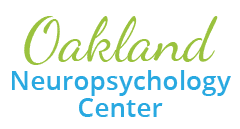You, your child, or loved one have been referred for a neuropsychological evaluation. For many, this is the first time they have heard about this type of testing. Rest assured; you are not alone! We are here to help you understand what this includes and how it can be beneficial.
What are some of the most common reasons neuropsychological testing is recommended?
- To help diagnose learning challenges, such as ADHD and learning disabilities including dyslexia (reading), dysgraphia (writing), and dyscalculia (math).
- To determine if someone has a developmental condition such as autism, fetal alcohol syndrome (FAS), language processing problems, and intellectual or cognitive deficits.
- To assist health care professionals (pediatricians, therapists, neurologists, psychiatrists, etc.) in clarifying underlying cognitive and emotional difficulties that might be co-existing. For example, could a person be struggling with depression or anxiety, in addition to ADHD or autism?
- To help differentiate between normal aging and dementia when people are concerned about changes in memory or cognitive skills.
- To provide the required documentation when applying for disability or guardianship.
- To determine whether a student qualifies for educational accommodations (ex. extended time on tests, oral testing, etc.) due to an underlying learning disorder. This can also extend to accommodations in the workplace.
What is Neuropsychological Testing?
- It refers to a number of tests used to understand the relationship between brain and behavior, as well as emotions and behaviors.
- Testing is performed in person, in a one-on-one setting with a neuropsychologist.
- Testing usually takes a few hours (between 2 to 6 hours typically, with breaks) depending on the reason for the evaluation.
- Areas evaluated: General intellect, reading/writing/math skills, attention, executive functions, language, visual-spatial skills, processing speed, memory, fine motor, adaptive skills (activities used every day), mood and personality.
What Will I Get Out of a Neuropsychological Evaluation?
- Diagnosis, if applicable. Testing will help figure out what is the cause of the learning, memory, or behavioral/social difficulties.
- Provide you with your own pattern of cognitive strengths and weaknesses, such as what type of learner you are, how you learn best, what negatively impacts your thinking skills, etc.
- A treatment plan: This is often the part that clients and referral sources find most useful. Once we have a better understanding of a person’s thinking strengths and weaknesses, we can make specific and helpful suggestions that recruit a person’s strengths to target areas where most assistance is needed. Our neuropsychological report are easy to read, focus on a person’s strengths as well as areas of weakness, and provide individualized recommendations that can be easily implemented across settings.
What are the Risks of Neuropsychological Testing?
There are no risks associated with this type of testing. Some people may feel tired or anxious during or after this process, while others may find it to be interesting and stimulating.
If you have questions about testing, please contact us at (248) 644-9466. We are here to help!



